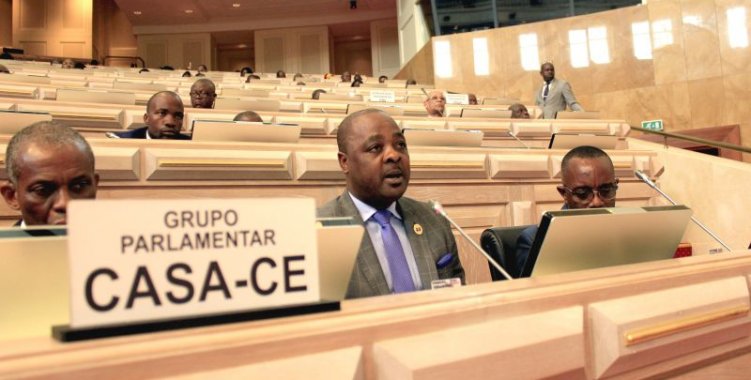The position was expressed this Friday at a press conference by representatives of the parliamentary groups of the National Union for the Total Independence of Angola (UNITA), the largest opposition party, the Broad Convergence for the Salvation of Angola - Electoral Coalition (CASA-CE) and the representation of the Social Renewal Party (PRS) and independent deputies.
The reaction comes after the President, João Lourenço, asked the National Assembly to re-examine some matters of the law, with the aim of "strengthening in some areas the instruments that ensure greater equality between competitors, healthy competition, smoothness and electoral truth, as part of the permanent implementation of the democratic rule of law".
"In the name of transparency, smoothness, credibility and electoral truth, we want a law to be approved that is as democratic as possible and with the greatest consensus it can have," said Maurílio Luiele, first vice-president of UNITA's parliamentary group.
At the press conference, the parliamentary groups pointed out a series of changes that they consider necessary to be made.
On October 1, the National Assembly approved the law amending the unofficial voter registration law, which the President decided to promulgate, and the law amending the organic law on general elections, which João Lourenço vetoed.
In response to journalists, CASA-CE deputy Justino Pinto de Andrade considered that the President's position aimed to "pass the message to his party in the sense of conciliating with the opposition forces, so that the document to be approved definitely contemplates the wishes of the oppositions also and the will of the MPLA [Popular Movement for the Liberation of Angola, ruling party]".
"And I think that this is what is going to happen, we are going to have the possibility to rediscuss the points that were presented here and we are going to try that everything comes to the satisfaction of the credibility of our country", he referred.
Justino Pinto de Andrade also noted the need for the MPLA parliamentary bench not to remain "reluctant" in what they consider "red lines", because they are the same that "make the process credible".
In turn, Benedito Daniel, representing PRS, said that the President of the Republic "was sensible" in his position.
"He vetoed the law. That's what we expected from him. If the MPLA parliamentary group is going to join or not, we think he has the responsibility to see an untainted process, in which the winners have merit and the losers also have their dignity," he stressed.
Benedito Daniel said that the political parties know which points should be reformulated in the law, although the President has not pointed them out.
The deputy Odeth Joaquim, from CASA-CE, reiterated the will to "go back to the debate" and see if "the political will and patriotic conscience" of the majority deputies reaches the point of reviewing and bringing to the country a law with which everyone can review themselves.
"When the President of the Republic vetoes, he calls attention to the equality of treatment among competitors, greater smoothness, transparency, and these are really the values that we in the opposition have always clamored for," he stressed.
The law to alter the organic law of the general elections was approved as a whole, with 126 votes for the MPLA, 52 against, and one abstention from the opposition. The opposition parties then united to appeal to the President not to promulgate the law, because it contains norms that "threaten the transparency of the elections".
The legislative initiative resulted from the merger of amendment bills proposed by the MPLA and UNITA parliamentary groups.
The opposition parties consider that the law as approved "legalizes unequal voting" because it "allows the competing parties to be confused with the State, does not guarantee the equal access of contestants to the use of public resources, and reduces the presence of inspectors at polling stations".
The opposition "rejects the proposal to guarantee the unity of the vote and the integrity of the voter's identity through the availability of a simple computer application in polling stations with the biometric data of voters in each province".
The National Assembly has already received this Friday the law for review.







